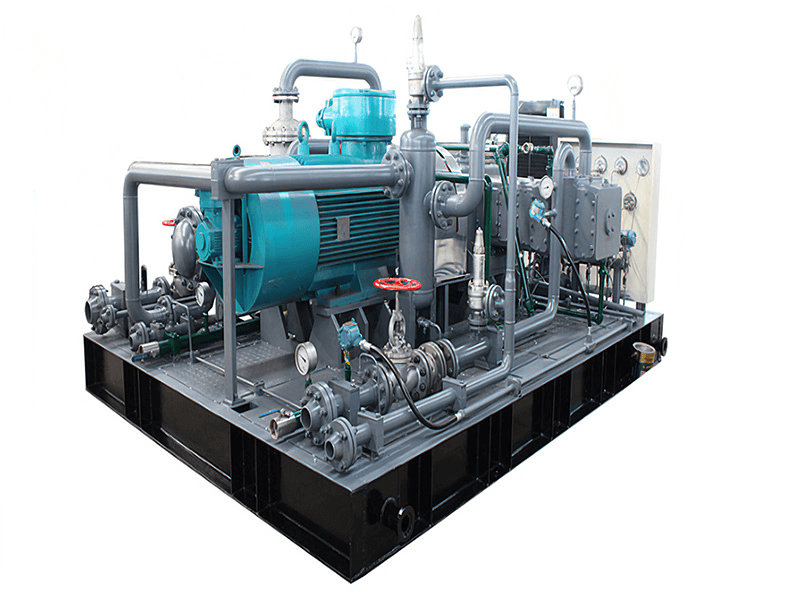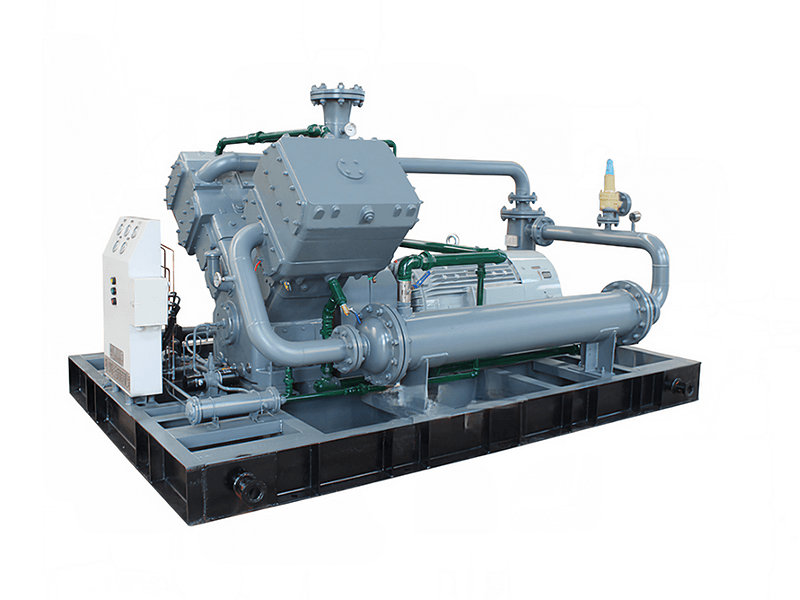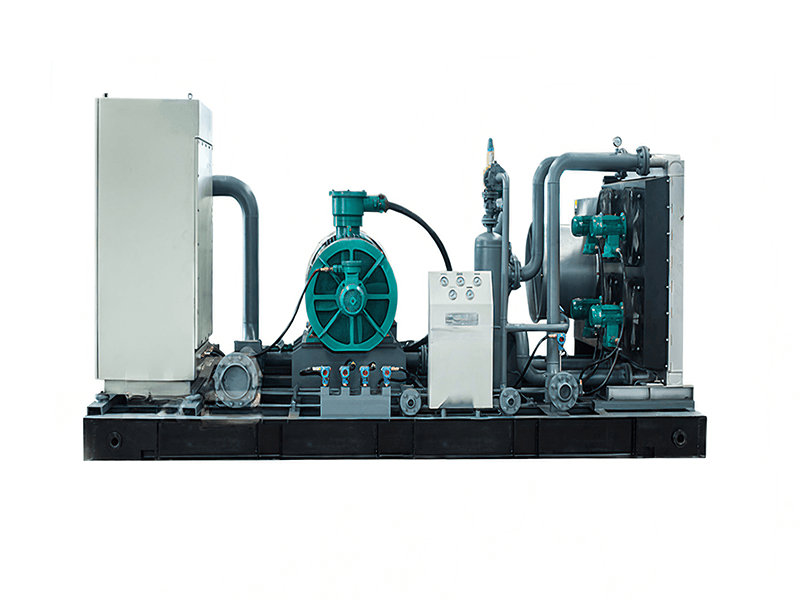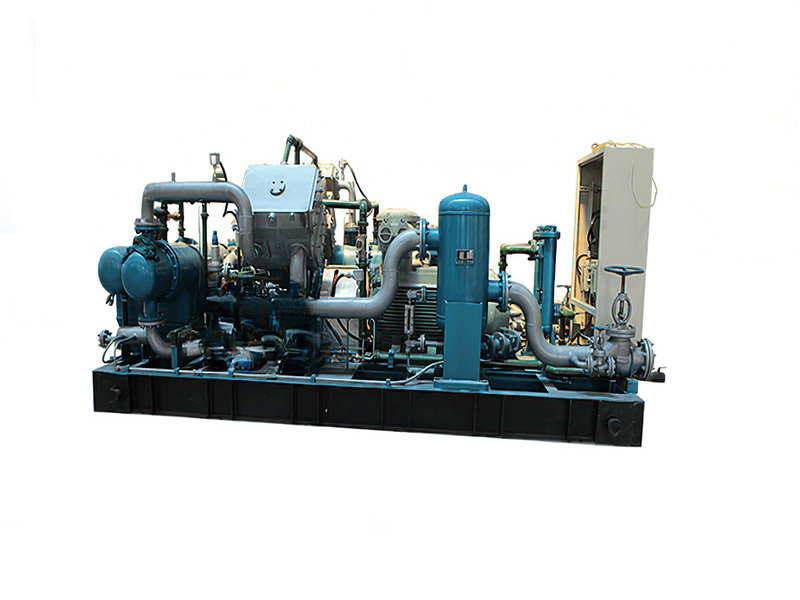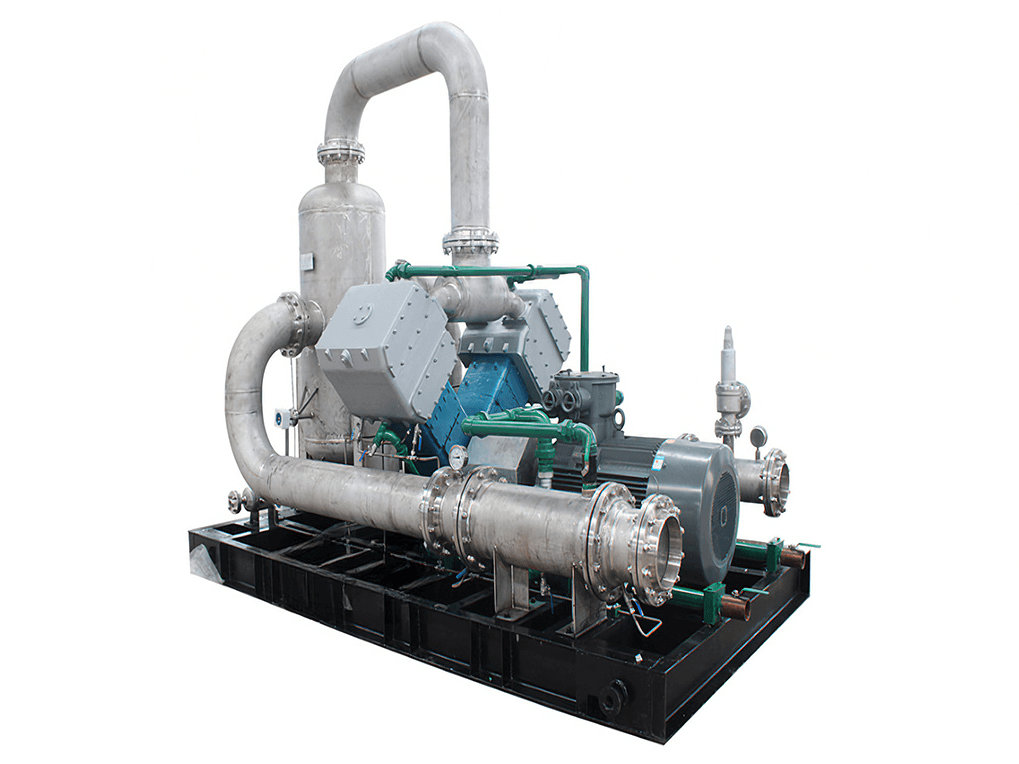【日本人吸舌添泬的起源和历史背景】最新入口
-

Requirements for hydrogen compression for hydrogen compressors
Jul 15, 2024 -

The difference between piston gas compressors and others
May 10, 2024 -

Types and price ranges of mixed gas compressors
Jun 09, 2024 -

The significance and method of natural gas boosting
May 16, 2024 -

Key features, applications and price examples of natural gas booster compressors
May 07, 2024 -

Price range of Natural Gas Compressors with different cooling methods
Jun 16, 2024
日本人吸舌添泬的起源和历史背景【乾坤易变】May 22, 2024
by:Anhui Shengnuo Compressor Manufacturing Co.,Ltd
Follow Us:
The oil and gas industry utilizes various types of gas compressors to handle different gases and meet specific operational requirements. Here are some commonly used gas compressors in the oil and gas industry:
1. Centrifugal Compressors: Centrifugal compressors are widely used in the oil and gas industry for large-scale compression applications. They are suitable for handling high volumes of gas at moderate to high pressures. Centrifugal compressors are known for their high efficiency, reliability, and compact design.
2. Reciprocating Compressors: Reciprocating compressors are versatile and commonly employed in the oil and gas industry. They use one or more reciprocating pistons to compress the gas. Reciprocating compressors are suitable for a wide range of pressures and can handle various gases, including natural gas, process gases, and associated gas.
3. Screw Compressors: Screw compressors are used in the oil and gas industry for applications requiring moderate to high pressures. They utilize two intermeshing screws to compress the gas. Screw compressors are known for their smooth and continuous operation, high reliability, and relatively low maintenance requirements.
4. Rotary Vane Compressors: Rotary vane compressors are used for low-pressure compression applications in the oil and gas industry. They use a rotor with vanes that slide in and out of slots to compress the gas. Rotary vane compressors are compact, reliable, and often used for vapor recovery and low-pressure gas compression.

5. Liquid Ring Compressors: Liquid ring compressors are primarily used for handling wet gases and vapor recovery in the oil and gas industry. They use a liquid ring created by a rotating impeller to compress the gas. Liquid ring compressors are suitable for applications where liquid carryover or contamination is a concern.
6. Axial Compressors: Axial compressors are commonly used in the oil and gas industry for high-volume gas compression at lower pressures. They use a series of rotating airfoils or blades to compress the gas in an axial flow direction. Axial compressors are often employed in natural gas processing plants and pipeline applications.
Certainly! Here are a few more types of gas compressors used in the oil and gas industry:
7. Lobe Compressors: Lobe compressors, also known as rotary lobe compressors, are used for low to medium-pressure gas compression applications in the oil and gas industry. They utilize two or more rotating lobes that trap and compress the gas. Lobe compressors are suitable for applications requiring a pulsation-free flow and are often used for vapor recovery and gas gathering systems.
8. Jet Compressors: Jet compressors, also called eductor or ejector compressors, are utilized in the oil and gas industry for low-pressure gas compression and boosting applications. They operate by entraining and compressing the gas using a high-velocity motive fluid, such as steam or compressed air. Jet compressors are often used for gas lift operations and vent gas recovery systems.
9. Diaphragm Compressors: Diaphragm compressors are employed in the oil and gas industry for handling high-purity gases and applications where gas contamination must be minimized. They use a flexible diaphragm to compress the gas, providing a hermetic seal between the process gas and the compression mechanism. Diaphragm compressors are commonly used in gas storage, gas delivery, and gas filling applications.
10. Scroll Compressors: Scroll compressors, also known as scroll vacuum pumps, find applications in the oil and gas industry for low-pressure gas compression and vacuum processes. They utilize interleaved spiral-shaped scrolls to compress the gas. Scroll compressors are often used for vapor recovery, low-pressure refrigeration, and gas dehydration systems.
11. Hybrid Compressors: Hybrid compressors combine different compressor technologies to optimize performance and efficiency for specific oil and gas industry applications. For example, a hybrid compressor may integrate a centrifugal compressor and a reciprocating compressor in a single unit to provide a wide operating range and enhanced efficiency for gas transmission or processing.
12. Liquid Piston Compressors: Liquid piston compressors, also known as reciprocating liquid compressors, are used in specialized applications within the oil and gas industry. These compressors utilize a liquid-filled cylinder as the piston, displacing the gas and compressing it. Liquid piston compressors are often used for applications involving high-pressure gas or hazardous gases.
13. Side Channel Compressors: Side channel compressors, also called regenerative blowers, are used for low-pressure gas compression in the oil and gas industry. They utilize a rotating impeller with side channels to compress the gas. Side channel compressors are often employed for applications such as aeration, pneumatic conveying, and flare gas recovery.
14. Cryogenic Compressors: Cryogenic compressors are designed to handle gases at extremely low temperatures, typically below -150 degrees Celsius (-238 degrees Fahrenheit). They are used in the oil and gas industry for handling liquefied natural gas (LNG) and other cryogenic gases. Cryogenic compressors are specially constructed with materials and systems capable of withstanding the low temperatures and handling the unique properties of cryogenic gases.
15. Turboexpanders: Turboexpanders, although not compressors in the traditional sense, play a vital role in the oil and gas industry for gas processing and energy recovery. They are used to expand high-pressure gas, extracting mechanical work or energy in the process. Turboexpanders are commonly employed in natural gas processing plants, LNG plants, and other applications where energy recovery or gas cooling is required.
It's important to note that the selection of a gas compressor in the oil and gas industry depends on specific operational requirements, gas properties, system design considerations, and safety factors. Consulting with compressor manufacturers, industry experts, and engineers experienced in oil and gas applications is crucial for selecting the most suitable compressor type for a particular project or operation.
【日本人吸舌添泬的起源和历史背景】注册登录
Here are some rough price ranges for the gas compressors mentioned previously. Please note that these prices are approximate and can vary depending on various factors such as capacity, specifications, brand, and market conditions:
1. Centrifugal Compressors: Prices can range from tens of thousands to several million dollars, depending on the size, capacity, and specific requirements of the application.
2. Reciprocating Compressors: Prices can vary widely based on capacity, design, and specifications. Smaller reciprocating compressors may start from a few thousand dollars, while larger and more specialized models can range from tens of thousands to hundreds of thousands of dollars.
3. Screw Compressors: Prices for screw compressors can range from several thousand dollars for smaller units to hundreds of thousands of dollars for larger, high-capacity models with advanced features.
4. Rotary Vane Compressors: Prices for rotary vane compressors typically range from a few thousand dollars for smaller units to tens of thousands of dollars for larger capacities or specialized versions.
5. Liquid Ring Compressors: Prices for liquid ring compressors can vary depending on capacity and specifications. They generally range from several thousand dollars to tens of thousands of dollars.
6. Axial Compressors: Prices for axial compressors used in the oil and gas industry can vary significantly depending on size, design, and application. Prices can range from tens of thousands to several hundred thousand dollars or more.
7. Lobe Compressors: Prices for lobe compressors can range from several thousand dollars for smaller units to tens of thousands of dollars for larger capacities or specialized versions.
8. Jet Compressors: Jet compressors are often considered as an accessory to other systems rather than standalone compressors. The pricing can vary depending on the specific application and system requirements.
9. Diaphragm Compressors: Prices for diaphragm compressors can vary significantly based on capacity, materials of construction, and application-specific requirements. They typically range from tens of thousands to hundreds of thousands of dollars.
10. Scroll Compressors: Prices for scroll compressors can vary depending on capacity, specifications, and application requirements. They generally range from a few thousand dollars for smaller units to tens of thousands of dollars for higher capacities or specialized versions.
11. Hybrid Compressors: Hybrid compressors are often custom engineered to meet specific project requirements, making it difficult to provide a specific price range. The cost will depend on the integration of different compressor technologies and the complexity of the system.
12. Liquid Piston Compressors: Prices for liquid piston compressors can vary widely depending on the capacity, materials of construction, and specific application requirements. They can range from tens of thousands to hundreds of thousands of dollars.
13. Side Channel Compressors: Prices for side channel compressors can range from several thousand dollars for smaller units to tens of thousands of dollars for larger capacities or specialized versions.
14. Cryogenic Compressors: Cryogenic compressors are typically high-end and specialized equipment, and their prices can vary significantly depending on capacity, materials, and specific application requirements. Prices can range from hundreds of thousands to millions of dollars.
15. Turboexpanders: Turboexpanders can vary widely in price depending on capacity, design, and specific application requirements. Prices can range from tens of thousands to several hundred thousand dollars or more.
It's important to note that the prices mentioned are approximate and can vary significantly based on various factors. It is recommended to contact manufacturers, suppliers, or authorized distributors to obtain accurate pricing information based on your specific needs and project requirements.
【日本人吸舌添泬的起源和历史背景】平台地址

Hi! Welcome back.
How are you doing?
Let s talk! We’ll provide the perfect solution for you!

Since its establishment, ASC Compressor has focused on comprehensive solutions for Oilfield industry, CNG/LNG industry, Environmental protection, and Industrial compression. It has excellent quality in designing, researching, producing and manufacturing.
- Quick Link > Home > Products > Applications > News > About > Contact
-
Contact Us
- E-Mail: [email protected]
- Tel: +8618098536798/+86(0)5633698699
- Fax: +86(0)5633698699
-
Address:
No. 17 Xingye Road, Economic Development Zone, Xuanzhou District, Xuancheng City, Anhui Province, China






